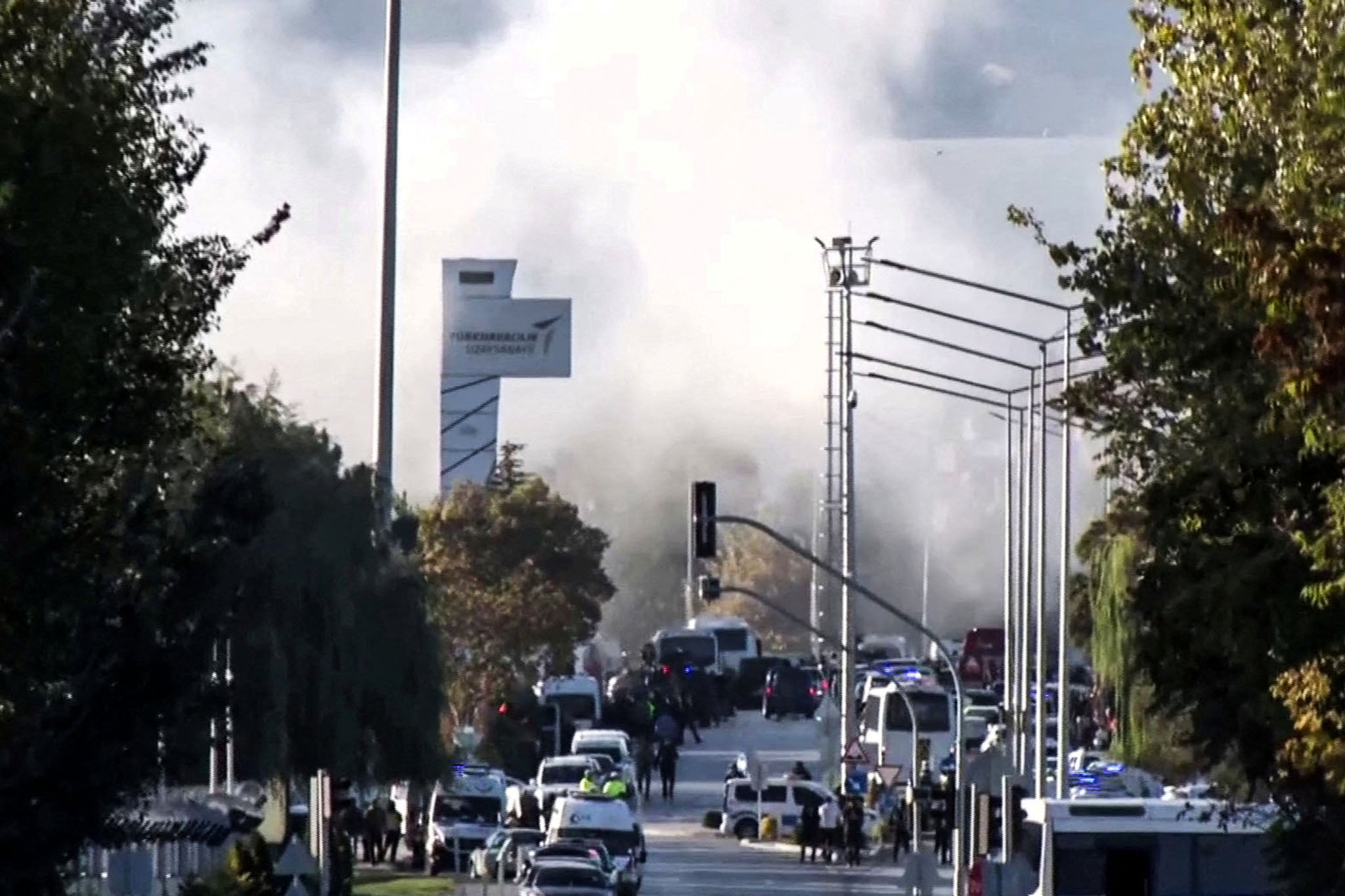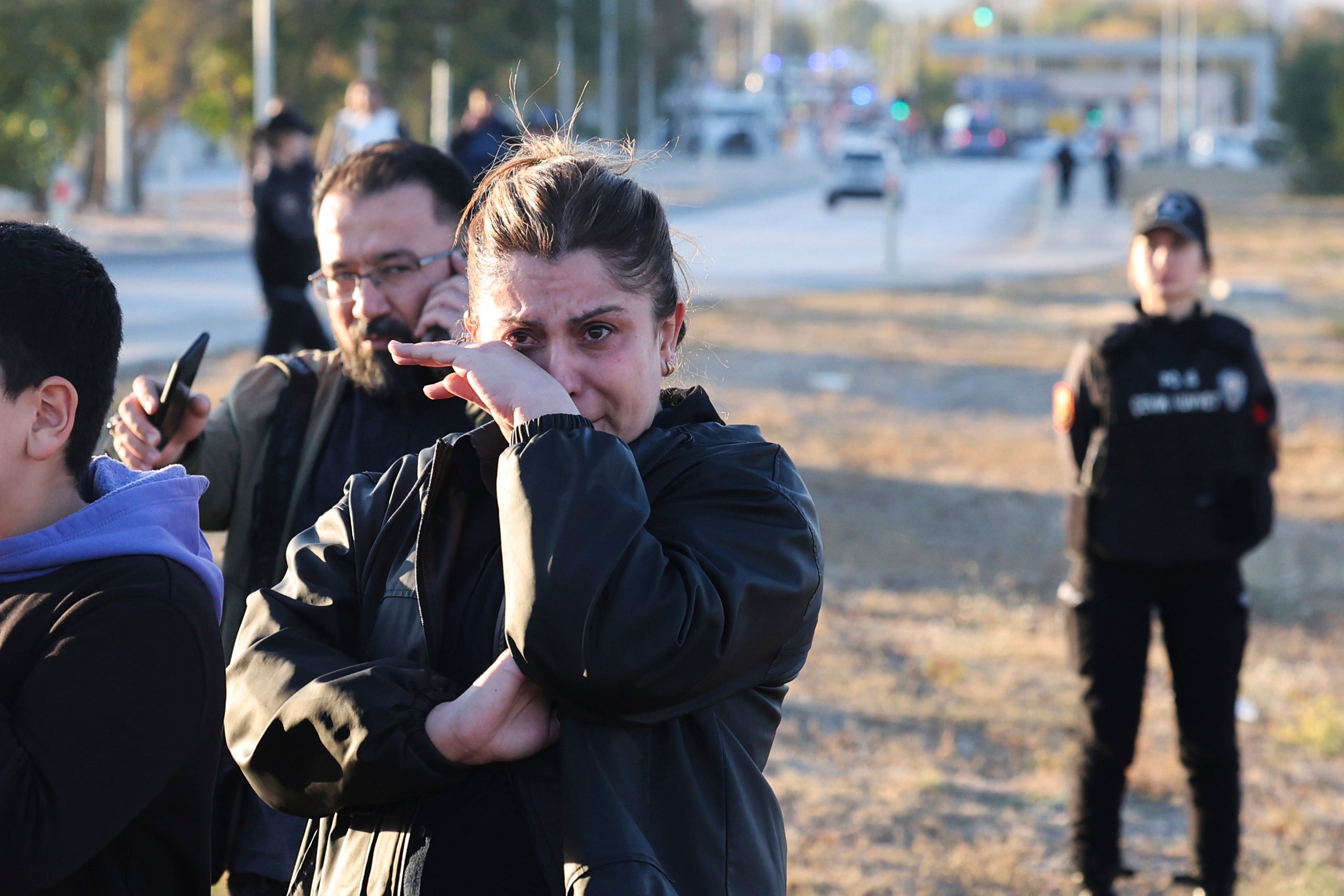
Turkish forces have launched airstrikes on suspected Kurdish militant targets in Syria and Iraq for a second day on Thursday, after Ankara said an attack on a state aerospace company in the capital killed five people.
The strikes targeted sites linked to the Kurdistan Workers’ Party (PKK) — which is recognised as a terrorist group by the US, EU and others — or by a Syrian-Kurdish militia that is affiliated with the PKK
On Wednesday, Turkey’s air force carried out airstrikes against similar targets in northern Syria and northern Iraq, hours after government officials blamed the deadly attack on the headquarters of the aerospace and defence company TUSAS, on the PKK.
A large explosion in Ankara sent smoke billowing over the headquarters of one of Turkey’s most important arms companies. CCTV footage showed a man and a woman wielding automatic weapons as they opened fire on staff trying to flee. Ali Yerlikaya, Turkey’s interior minister, confirmed the pair were “neutralised.”

No group has claimed responsibility for the attack, which injured 22 people.
Turkey’s defense minister, Yasar Guler, said on Thursday that 47 alleged PKK targets were destroyed in Wednesday's airstrikes — 29 in Iraq and 18 in Syria.
"Our noble nation should rest assured that we will continue with increasing determination our struggle to eliminate the evil forces that threaten the security and peace of our country and people until the last terrorist disappears from this geography," Mr Guler said.
”I condemn this heinous terrorist attack and pray to God for mercy on our martyrs”, Turkish president Recep Tayyip Erdogan said from Russia, where he was attending the BRICS summit and gave his thanks to President Vladimir Putin for his condolences.
On Thursday, large crowds gathered in the courtyard of a mosque in Ankara to take part in the funeral prayers for three of the victims, including Zahide Guclu — an engineer who was part of a TUSAS helicopter project. She was killed by the assailants after she had gone to the entrance of the complex to collect flowers sent by her husband.
TUSAS designs, manufactures and assembles civilian and military aircraft, unmanned aerial vehicles, and various defence and space systems. The drones produced by the company also been used in the conflict,
The Ankara attack came at a fragile moment in the decades-long conflict between Turkey and the PKK – who seek autonomy in the southeast of the country – coinciding with renewed discussions about a possible ceasefire. On Tuesday, Devlet Bahceli, leader of the ultranationalist Nationalist Movement Party (MHP) and a key ally in president Mr Erdogan’s coalition government, proposed a peace deal.

The deal would involve offering Abdullah Ocalan, the PKK’s imprisoned leader, a chance to reduce his life sentence in exchange for dismantling the PKK’s military wing.
Past peace efforts around a decade ago collapsed and led to a surge in violence, with strong opposition to any agreement from factions on both sides.
Ocalan, who was captured in 1999, is serving a life sentence on a prison island off Istanbul. In a related development, his nephew Omer Ocalan announced on the social platform X that on Wednesday family members were allowed to visit him for the first time since March 2020.
Omer Ocalan, an MP from Turkey's pro-Kurdish Peoples' Equality and Democracy Party, also conveyed a message from Abdullah Ocalan, saying he was being kept in isolation and offering to work to end the conflict "if the conditions are right."
"I have the theoretical and practical power to (transform) this process from one grounded in conflict and violence to one that is grounded on law and politics," Omer Ocalan quoted his uncle as saying.
Turkey has also launched successive military operations in northern Syria, targeting the Syrian Kurdish People’s Protection Units (YPG) which it considers a terrorist group and an extension of the PKK.
The incident on Wednesday follows a suicide bombing in Ankara more a year ago, also attributed to the PKK. Turkey has faced attacks from Isis in the past, with the last major wave of bombings from 2015 to 2017.
Britain’s prime minister Sir Keir Starmer said he was “appalled” by Wednesday’s attack. He said: “We stand shoulder to shoulder with Turkey as a NATO ally and close friend. Our thoughts are with the families of victims and all those affected.”
Associated Press contributed to this report







